
The major factor constraining efforts to reduce greenhouse gas emissions, prepare for climate change, and adopt a path towards true sustainability is not lack of new technologies or policies. It is mindset and culture. The beliefs that individuals and groups hold about the natural environment, economy and social relations determine how they act. Actions, in turn, generate results.
TRIG’s program on Sustainable Thinking, Culture, and Change helps public and private sector leaders learn how to create an atmosphere in which individuals and organizations become motivated to shift their underlying assumptions and beliefs and transform their cultures in ways that produce environmentally, socially and economically sustainable results.
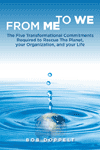 The principles and methods used in the program are based on those developed by TRIG Executive Director Bob Doppelt which are described in his new book From Me to We: The Five Transformative Commitments Required to Save the Planet, Your Organization, and Your Life (Greenleaf Publishing 2012) along with his two previous best selling books: Leading Change toward Sustainability: A Change Management Guide for Business, Government and Civil Society (Greenleaf Publishing 2003) and The Power of Sustainable Thinking: How to Create a Positive Future for the Climate, The Planet, Your Organization and Your Life (Earthscan Publishing 2008).
The principles and methods used in the program are based on those developed by TRIG Executive Director Bob Doppelt which are described in his new book From Me to We: The Five Transformative Commitments Required to Save the Planet, Your Organization, and Your Life (Greenleaf Publishing 2012) along with his two previous best selling books: Leading Change toward Sustainability: A Change Management Guide for Business, Government and Civil Society (Greenleaf Publishing 2003) and The Power of Sustainable Thinking: How to Create a Positive Future for the Climate, The Planet, Your Organization and Your Life (Earthscan Publishing 2008).
To accomplish our goals the program on Sustainable Thinking, Culture, and Change:
- Produces leading-edge research on behavioral, organizational and cultural change
- Publishes books, guides, and other documents on behavioral, organizational and cultural change
- Offers complimentary webinars on behavioral, organizational and cultural change
- Offers in-depth training programs and technical assistance on behavioral, organizational and cultural change
- Partners with forward-looking organizations in strategic projects to advance behavioral, organizational and cultural change
The Program on Sustainable Thinking, Culture, and Change is currently engaged in the following:
Sustainable Thinking and Cultural Change Training and Technical Assistance
Upon request, we offer comprehensive Training Programs and Technical Assistance to leaders that desire assistance in developing a culture within their organization or community focused on achieving economically, socially and environmentally sustainable results. Email us for more information about training or technical assistance.
Read a recent review from the UK of Bob Doppelt's book Leading Change toward Sustainability that reaffirms that it is one of the 10 most important books in sustainability
Bob Doppelt's recent presentations:
See Bob Doppelt's presentation at the 2013 Climate, Cities and Behavior Symposium on How to Build Social Resilience and Help Communities Shift From Me to We.
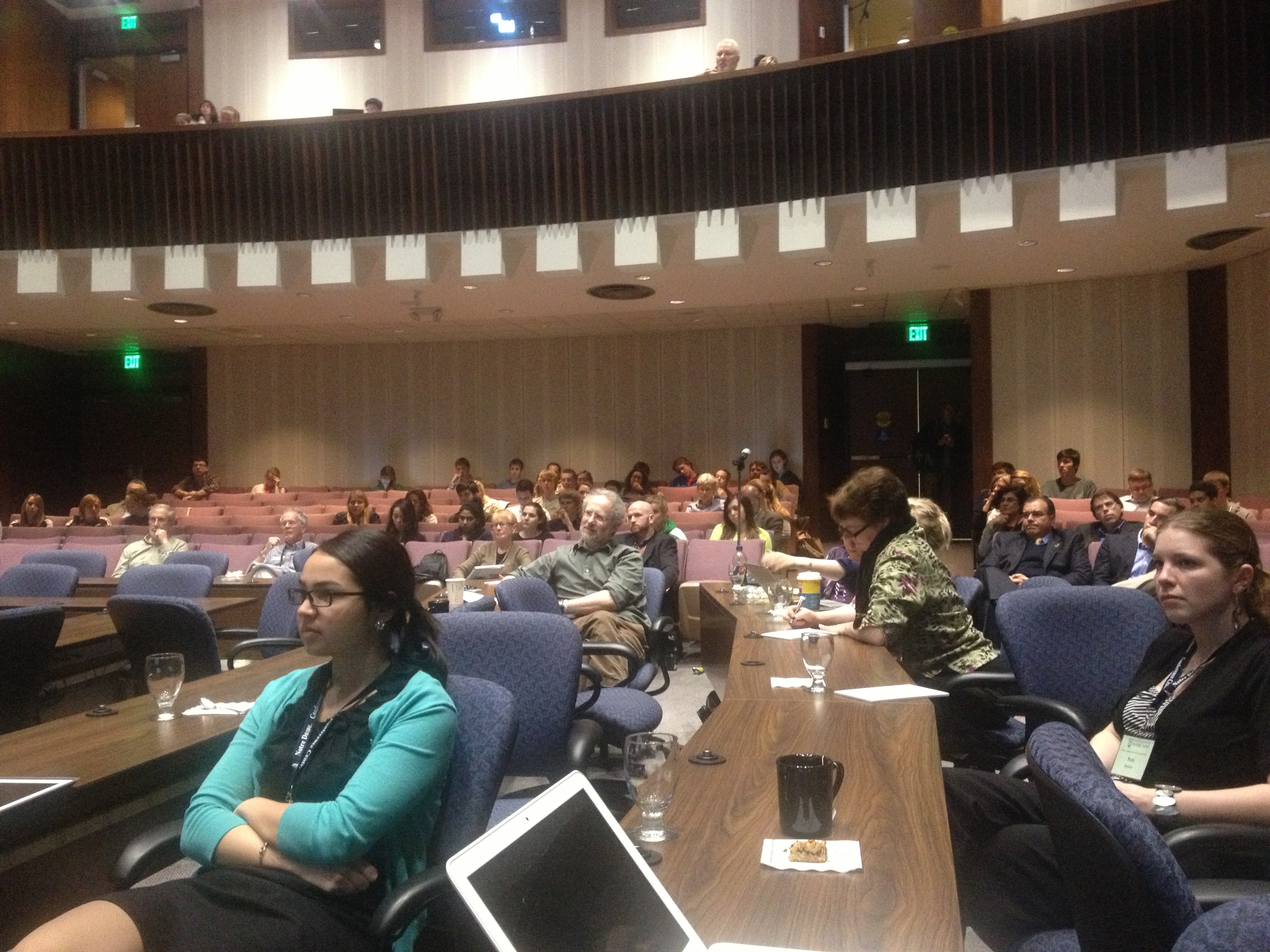
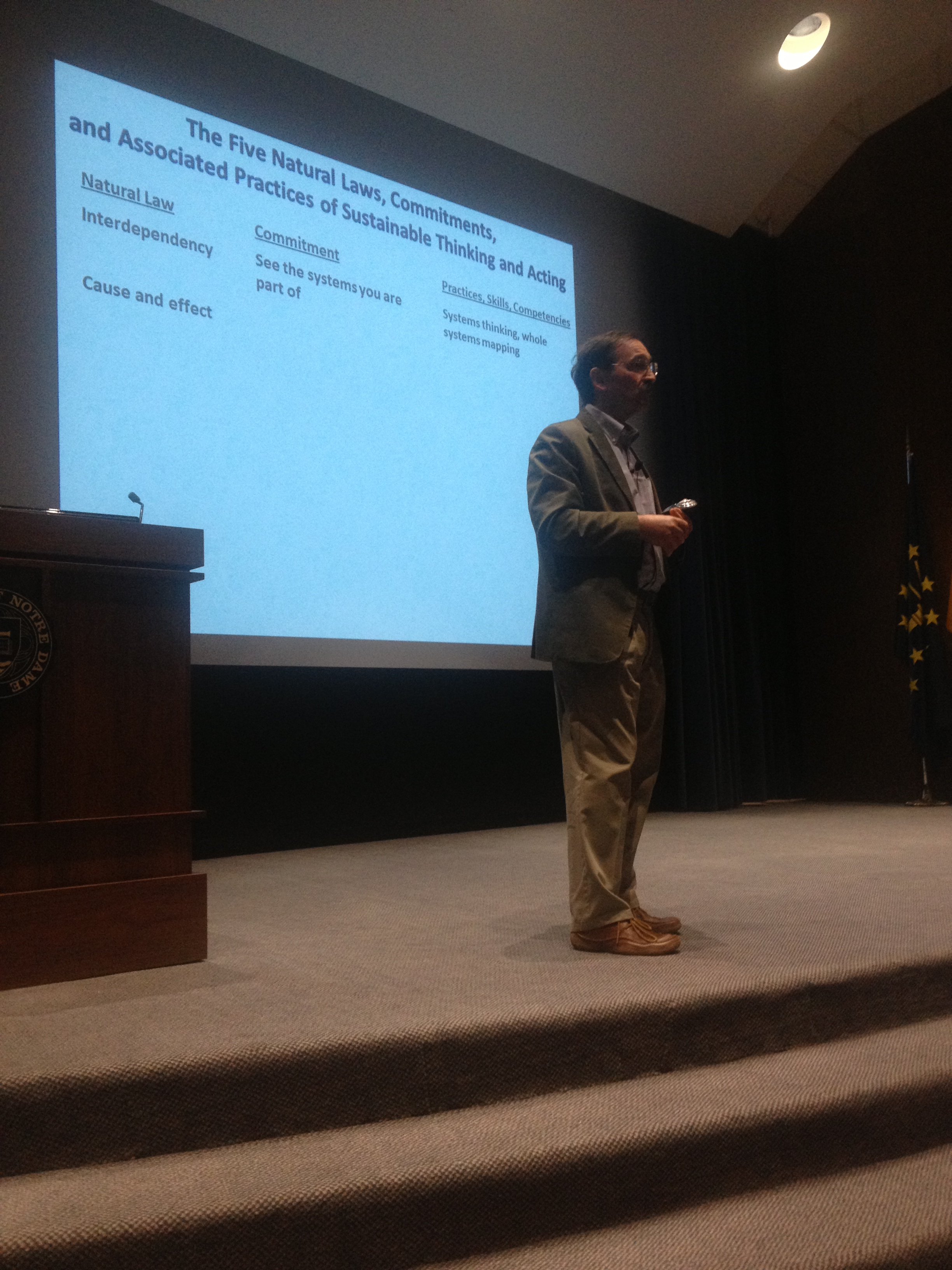 Bob speaking at the Notre Dame Climate Change and Common Good Conference (April 2013)
Bob speaking at the Notre Dame Climate Change and Common Good Conference (April 2013)
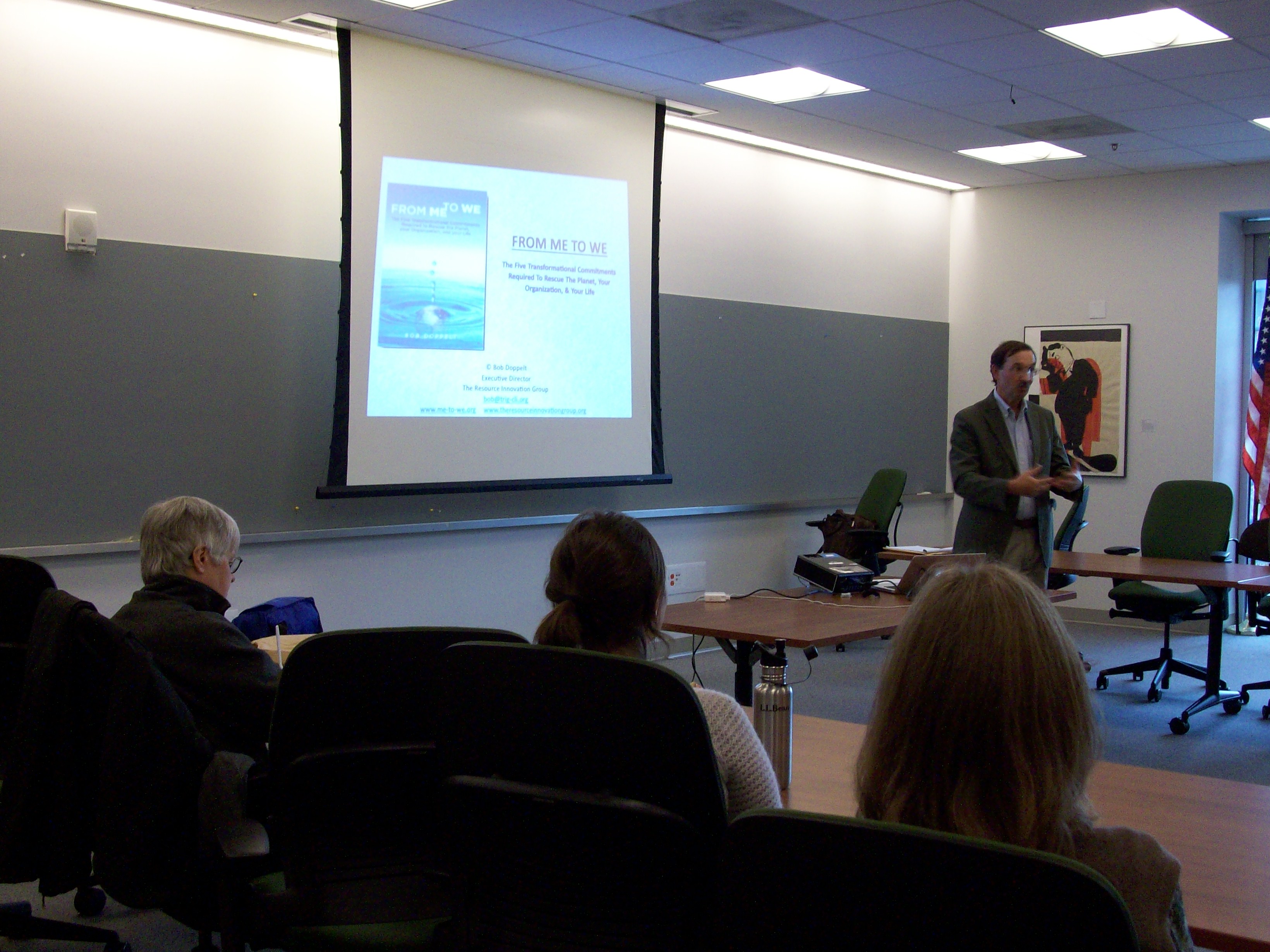 Bob gives a talk to City of Seattle and King County Sustainability and Climate Staff (October 12, 2012)
Bob gives a talk to City of Seattle and King County Sustainability and Climate Staff (October 12, 2012)
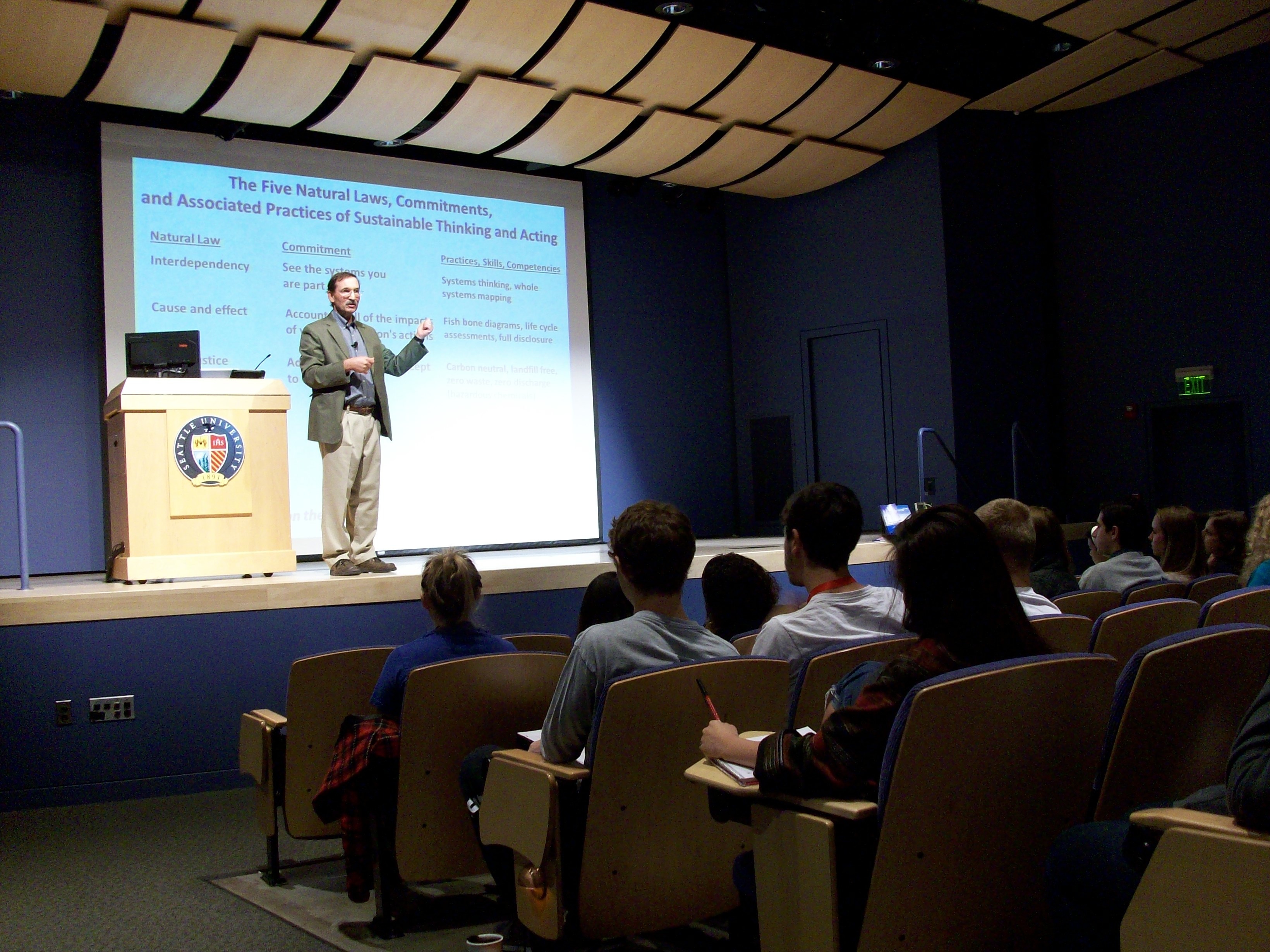 Bob speaks to students, faculty, and staff at Seattle University (October 10, 2012)
Bob speaks to students, faculty, and staff at Seattle University (October 10, 2012)
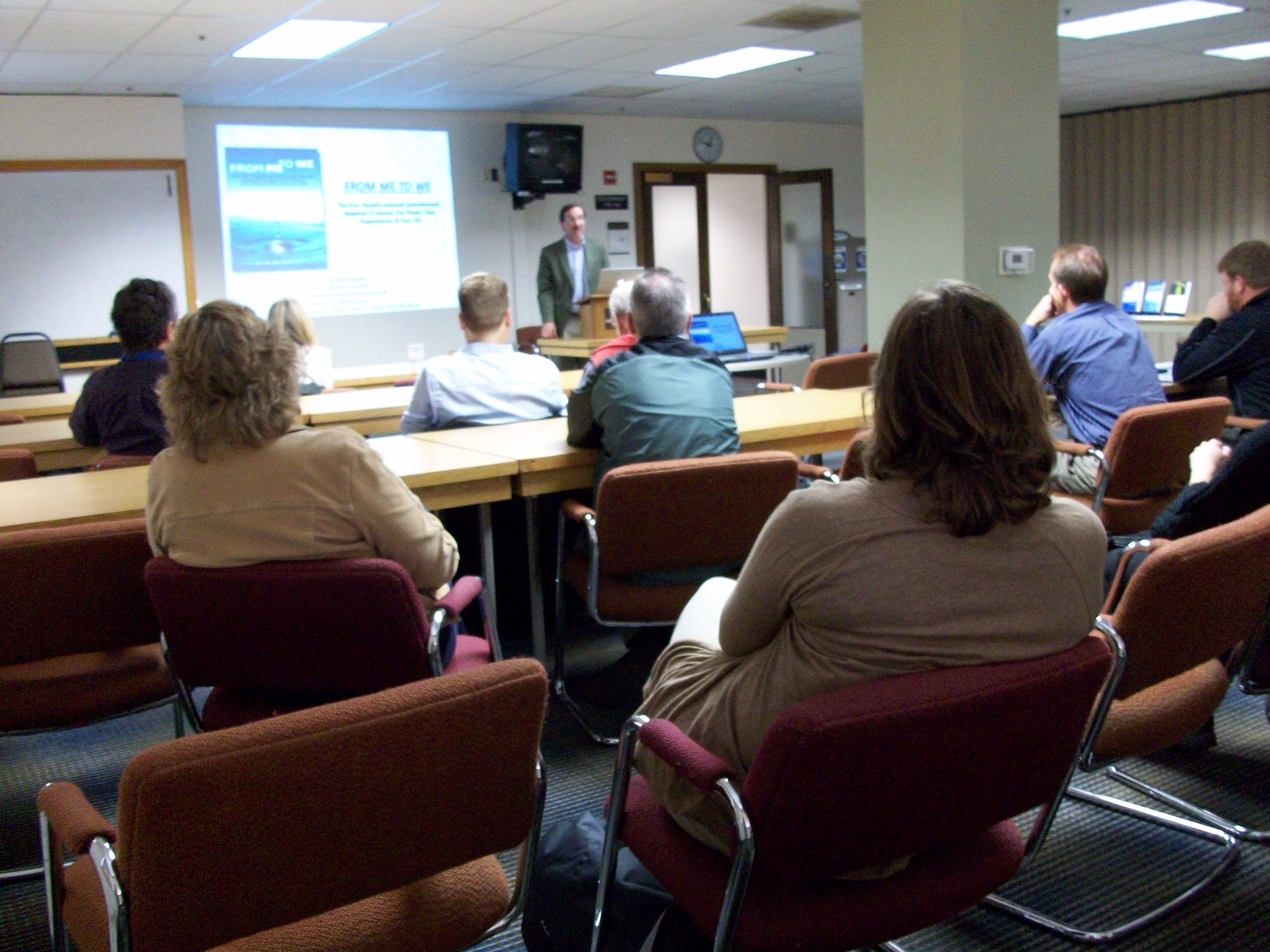 Bob runs a workshop for the City of Tacoma Office of Sustainability (October 11, 2012)
Bob runs a workshop for the City of Tacoma Office of Sustainability (October 11, 2012)
 Bob talking to a packed house at the Global Institute of Sustainability about the "Five Natural Laws of Sustainability" at Arizona State University (September 17, 2012)
Bob talking to a packed house at the Global Institute of Sustainability about the "Five Natural Laws of Sustainability" at Arizona State University (September 17, 2012)
 Bob talking with the Mayor of Sedona and the Economic Development Manager of Cottonwood just before the evening 'From Me to We' talk with community members in Cottonwood, Arizona. (September 17, 2012)
Bob talking with the Mayor of Sedona and the Economic Development Manager of Cottonwood just before the evening 'From Me to We' talk with community members in Cottonwood, Arizona. (September 17, 2012) Bob facilitating a 'From Me to We' workshop with the City of Phoenix Green Team. (September 18, 2012)
Bob facilitating a 'From Me to We' workshop with the City of Phoenix Green Team. (September 18, 2012)
 Bob facilitating a workshop on 'Making Sustainability Stick" with the City of Phoenix solid waste program (September 18, 2012)
Bob facilitating a workshop on 'Making Sustainability Stick" with the City of Phoenix solid waste program (September 18, 2012)
 Bob leading a workshop on "Ramping Up in Your Sustainability Role" for 90 plus retail companies at the Retail Industry Leaders Association 2012 Sustainability Conference. (September 19, 2012)
Bob leading a workshop on "Ramping Up in Your Sustainability Role" for 90 plus retail companies at the Retail Industry Leaders Association 2012 Sustainability Conference. (September 19, 2012)
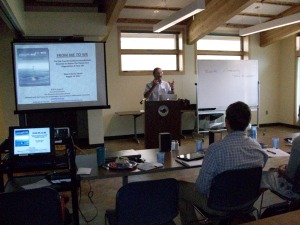 Bob Doppelt speaks to Northern Wyoming and eastern Idaho sustainability practitioners at the Teton Science School in Jackson, Wyoming on August 16, 2012
Bob Doppelt speaks to Northern Wyoming and eastern Idaho sustainability practitioners at the Teton Science School in Jackson, Wyoming on August 16, 2012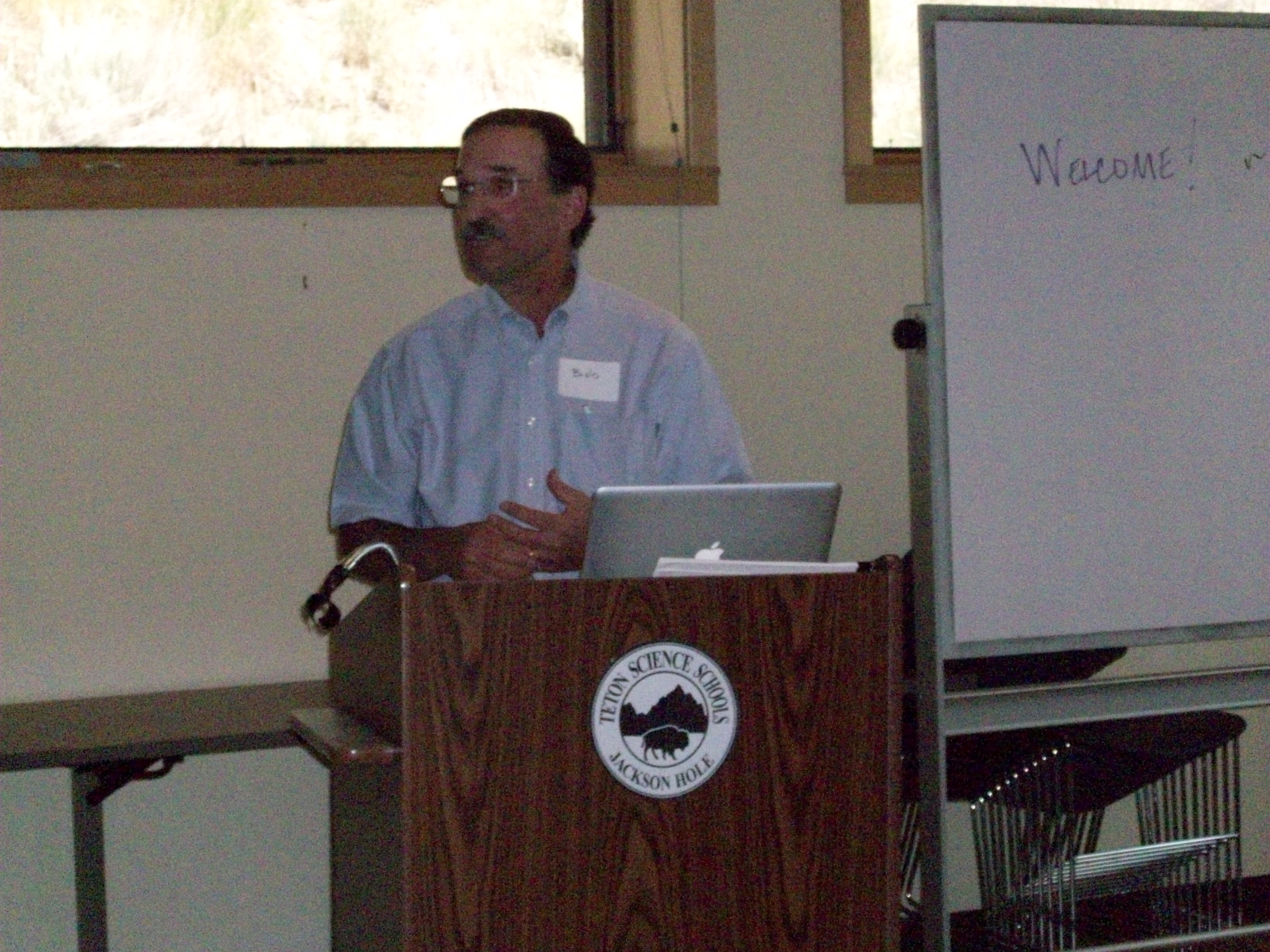 Bob Doppelt speaks to Northern Wyoming and eastern Idaho sustainability practitioners at the Teton Science School in Jackson, Wyoming on August 16, 2012
Bob Doppelt speaks to Northern Wyoming and eastern Idaho sustainability practitioners at the Teton Science School in Jackson, Wyoming on August 16, 2012
Bob Doppelt speaks to the Alliance for a Sustainable Colorado in Denver June 8, 2012
 Bob Doppelt speaks to the Alliance for a Sustainable Colorado in Denver June 8, 2012
Bob Doppelt speaks to the Alliance for a Sustainable Colorado in Denver June 8, 2012
Bob Doppelt gives a keynote presentation at the Urban Sustainability Leadership Academy conference in Denver June 7, 2012
Bob Doppelt facilitates a workshop on 'changing minds and behavior' at the Urban Sustainability Leadership Academy conference in Denver June 7, 2012
‘Me to We’ Campaigns
Financial collapse, rising unemployment, and escalating political hostility, coming at a time of raging tornadoes, massive floods, intense heat waves, and prolonged droughts have left many of us confused and despondent. Everywhere we look, the economic, social and ecological systems we depend on seem to be collapsing. The interlinked nature of these problems means they cannot be resolved by each person and organization continually striving to enhance their self-interest—that is, by focusing solely on ‘Me’. Instead, we must make a fundamental shift and seek to achieve our goals by always considering and caring for an expansive ‘We’—the many people, organisms, and interconnections involved with the ecological and social systems we are all part of. The Program on Sustainable Thinking, Culture, and Change coordinates a number of initiatives aimed at helping people and organizations make the shift from ‘Me to We’. Hear Bob Doppelt's presentation on how to make the shift From Me to We at the Garrison Institute
The National Climate Ethics Campaign
This project seeks to clarify and highlight for Americans the moral and ethical obligations we have to address climate change. To describe those moral obligations, a 27-person steering committee composed of representatives from financial, youth, labor, racial justice, civil rights, faith, and conservation organizations across the nation has produced a “Statement of Our Nation’s Moral Obligation to Address Climate Change.” The statement will be released to elected officials, business, community, and civic leaders, and the public nationwide. To read or endorse the statement please go to: www.climateethicscampaign.org. Following the release of the statement, a multi-year initiative will be begin to drive the message of our moral obligations to address climate change home within numerous organizations, sectors and constituencies nationwide. A major aspect of the initiative will be training and assistance in cultural and behavioral change focused on emissions reductions and climate preparedness.
‘Me to We’ Community Campaigns
We support local people and organizations that desire to launch ‘Me to We’ campaigns in their community or organization. The goal of the campaigns is to broaden the awareness of leaders and members of the need to forego self-interest and respond to issues through the lens of ‘We’, which means enhancing the ecological, economic and social systems that support the community or organization. We provide tools and handbooks that leaders can use to organize and coordinate campaigns; offer phone, email, and on-site assistance in campaign development and implementation; and continually engage campaign leaders through conference calls and meetings to share ideas, query others about ways to solve problems, and share successes. Please let us know if you would like more information about how to start a ‘Me to We’ campaign in your community or organization.
Climate, Governance and Resiliency
This project identifies the changes in thinking, culture and governance required to foster widespread emission reduction practices and the adoption of climate preparedness strategies. Working in specific locations around the nation, we will identify the beliefs that must be changed, the beliefs that must be adopted, and those that should continue in order to successfully address climate change. Change tools and strategies will then be developed to assist public and private leaders in making those shifts.
